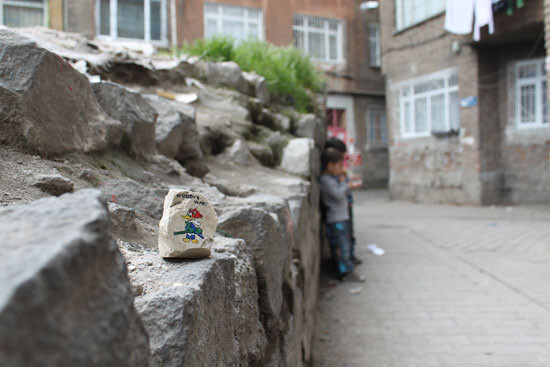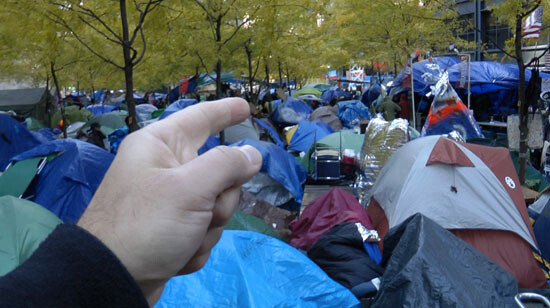Pelin Tan: In Infinitely Demanding, you describe a distinction between active and passive nihilism. As I understand it, this description has a theological basis. You offer Al-Qaeda as an example of active nihilism. However, I have my doubts about this distinction. I think active nihilism cannot be explained in terms of local and specific conditions, since its meaning is based in Western epistemology. Do you think Western thought is capable of explaining oppositional radical movements such as Al-Qaeda by way of nihilism?
Simon Critchley: It is a question of the political uses of religion, or civil religion in the way Rousseau talks about it in The Social Contract. We could think of religion as ideology. My view is that things like class, ethnicity, and the rest are hugely important, but the question concerns how a polity such as a state acquires legitimacy and is able to motivate citizens to act on its behalf. And the answer to that question requires some understanding of civil religion. In The Social Contract Rousseau comes to the conclusion that politics requires a quasi-religious apparatus of rituals, including flags, national anthem, pledges of religions, and all the rest. Turkey is a very good example. Ataturk basically tried to invent a kind of civil religion using nationalism. So for me, all political units, especially states, justify themselves and try to motivate citizens by appealing to a form of civil religion. Here in the US, that works through the Constitution and the way constitutionality begins with an appeal to God—”In God We Trust.” And this becomes the basis for a political fight, the question of how the civic creed of the United States is to be interpreted. Does it justify a Republican or Democratic governmental order? Analogous situations exist elsewhere. The French elections took place last Sunday and France also has a civil religion, even though the country is purportedly secular.
PT: What is your opinion on the relationship between secularism and liberal democracy nowadays?
SC: I think that all political units make an appeal to something like the sacred, some conception of the sacred. And to me, the history of political forms is a history of different forms of sacralization — from Mesopotamia through Sumeria to the ancient world, and to where we are now. So in my opinion the secular is another expression of the sacral. Of course, secularists usually insist that God has no role in the political realm, that we cannot appeal to God. This is usually based on some progressivist idea of history, which is also religious. Secularism takes over the providential narrative of Christianity, changes some key elements, and comes up with the idea that liberal democracy is the completion of history. The idea is that one is either on the right side of history or the wrong side of history—as Saint Obama has said. So for me, secularism is another appeal to something sacred, the sacredness of human rights, the universality of human rights. This is ideology. I come out of a Gramsician leftist tradition that took a very particular form in England in the ‘70s and ‘80s, where thinkers like Ernesto Laclau, who was very influential for many years, tried to follow Gramsci’s insistence that ideology is important. Ideology isn’t just superstructure. Marxism is about socioeconomic conditions, class, and all the rest—of course that’s true. But ideology, and therefore politics, is that field where social groups are articulated. So for me, ideology has huge importance. And it’s in relation to that notion of ideology that religion takes on this particular importance. So it is not religion, ethnicity, or class inequalities that are important, but the way in which the articulation of each of those terms also appeals to notions of the sacred.


PT: What are the differences between the early Obama and the recent Obama? How has the representation of “conservatism” and American governmentality transformed between these two periods?
SC: In 2008, during the presidential campaign, I was in the US and became fascinated with Obama. What fascinated me most about him was that he had written two books, two autobiographies by his forties, which is weird. Rousseau wrote three autobiographies. Obama has written two, which is not bad. I thought I should read them very closely. Obama is a constitutional liberal and his commitment to God—which he describes in Audacity of Hope—is deist. If you look at Carl Schmitt’s analysis of political theology, one of the claims that Schmitt made is that the political theology of liberalism is deism. Deism is the belief that there is a God, but God does not interfere in the world. God does not perform miracles. That’s not Christianity, and that’s Obama’s God. So a God is out there, but a God who will not intervene in the constitutional arrangements of the US. A fascinating debate happened in 2008, allegedly about race, between Obama and his former pastor Jeremiah Wright. It was really a debate about religion. Jeremiah Wright was the person who converted Obama to Christianity. Wright is a prophetic Christian who believes that the United States is a wicked empire that does terrible things. And God can intervene in the world and redeem us, right? That is what Christians believe. But it’s not what liberals believe. Anyway, the point is that it’s important to take a phenomenon like Obama incredibly seriously, to see what’s going on there. I published criticisms of Obama before the election in Harper’s Magazine. I was never an Obama enthusiast.
PT: Could this be a new type of liberalism?
SC: Obama is the most classical American liberal you can imagine. This is what makes right-wing polemics about him being a socialist so laughable. My reading of Obama as a human being is that, if you read his books, there is an extraordinary sense of emptiness. This man is radically empty. And usually, people who are radically empty turn to writing. Audacity of Hope is about his mother, Dreams From My Father is about his father. What we have to understand about him is that his belief in United States is the incarnation of a fullness that fills that void. So he is a passionately patriotic classical American liberal in the tradition of Madison, Jefferson, and obviously Abraham Lincoln. He’s the most American thing you can imagine. And he is both black and not black. He is black in the sense that he is African. And he is American. But he is not African-American. A big issue that nobody can talk about with any sanity here is Obama’s relationship to the African-American community, which is really complicated. They know that he is not one of them. He might pass as one of them but he is not really one of them. But you can’t really talk about this openly.
PT: To return to my earlier question, how can we define the “violence” of active nihilism across different, specific cultural contexts?
SC: I don’t think Al Qaeda or the groups around them are non-Western. I don’t believe in the West, and I don’t believe in positioning ideas as Western or non-Western. I think that’s also ideological. Bin Laden’s teacher was a follower of Sayyed Qutb, who taught in Cairo for many years. He was a Leninist. It was this original mixture of radical leftism with religious traditionalism, as a response to the violence of American, French, and British imperialism that is at the core of Al Qaeda. Another thing I read very closely were the statements of Osama Bin Laden.


PT: Where did you find them?
SC: Psychetube is very well known in the Arab world and makes some very interesting things available. Al Qaeda has very little in the way of a social and political program. There is a critique of the violence of crusaders, America or Israel. And there is an appeal for jihad, for holy war, as a way of justifying a violence against their violence. A fascinating text that I read is a Bin Laden message called The Towers of Babylon. He talks about watching television in 1982 during the Israeli bombardment of Beirut. As the Israelis were bombing Beirut, the US Navy was sitting off the coast doing nothing. Bin Laden watched televised images of missiles going into towers—in Beirut there are lots of towers. He thought: “missiles towers, missiles towers …,” and the image stuck with him. Then he decided to do something about it—“How can I put a missile into a tower?” The point is that violence is never one thing. Violence is a phenomenon within history, and a phenomenon is always divided around one violent act, which is a response to another. So the question of violence always takes us back to a previous violence. There is always a prior violent act. From the US perspective, there was the violence of 9/11, which justified the counter-violence of the invasion of Afghanistan and Iraq. From the perspective of Al Qaeda, there was the violence of imperialism, of the fist Gulf War and the humiliation of Arab states, particularly of Saudi Arabia by the United States. That violence justifies counter-violence. Violence is a cycle of violence and counter-violence. This is the logic of revenge. How can we arrest this cycle of revenge? Nonviolence is a wonderful thing and I am in favor of an ethics and politics of nonviolence, but nonviolence only makes sense in relationship to a full understanding of the history of violence from which we spring, which we are. And too often, liberals simply claim “nonviolence” and forget the original violence that created them. Every political unit originates in violence.
PT: From the beginning I have had serious doubts about the Arab Spring as a convincing oppositional movement. It is mostly a replacement of one conservative or oppressive hegemony for another. The Arab Spring happened just after Infinitely Demanding came out; do you think the Arab Spring is a sufficient meta-political term to mark such an epoch, or do you have doubts?
SC: It’s best to go context by context. I think Libya was a kind of tribal war because of the way Libya was run. And looking at events in Egypt, it becomes difficult to detect a pattern. I was captivated by what was happening in Tahrir Square. It was a classical revolutionary situation. Do classical revolutionary situations have to end up maintaining the existing state in Egypt? If you are an anarchist then you might want to say, “Well maybe we should follow this all the way through and think about a new way of thinking about the state. The Arab states are lines in the sand that were created by the French and the British for the most part, why continue with that?” So Egypt is really problematic. Tunisia is the country I know best in North Africa. If you had asked me some years ago, “Could a revolution happen in Tunisia?,” I would’ve said, “Absolutely not.” It was a very well-organized, completely rotten police state, like East Germany. I visited Tunisia a lot and there were secret police everywhere. Everybody was informing on everybody else. That’s the way the system worked. So the fact that the humiliation of one fruit vendor led to what happened in Tunisia was amazing. Syria is obviously an absolute mess and this will lead to civil war. Nonviolent resistance has been forced towards violence as a response to the cynical violence of the Assad regime. So yes, I am disappointed. Revolution is, I think, a largely meaningless word. It is an astronomical term that describes the revolution of the planets, celestial revolution, movement backwards and forwards. I am not convinced that revolution is always the best way to produce change. There is a great romantic appeal to revolution. But for me, politics is about lower-level interstitial moments or movements where change can happen in a different and more molecular way. We can talk about Occupy. Occupy is not revolution – it is rebellion - but it is very interesting and it has made a very different set of political tactics available. Occupy is something very familiar to many of the people on the anarchist left. Its tactics and strategies are ones that had been developed over many years. I do not believe in the big public revolutions, the storming of the Winter Palace or the storming of the Bastille. I believe in a low-level, almost invisible series of actions, which at a certain point reach visibility and then really have an effect. As Gramsci would say, politics is not a war of maneuver or frontal assault on power. It is a tenacious and long-lasting war of position. This requires optimism, cunning and patience.


PT: In Infinitely Demanding, you separate 1960s anarchism and contemporary anarchist practices. Contemporary anarchism is no longer based on the demand for freedom as it was in the 1960s, but on the demand for the responsibility of others, which you reconstruct as being based on a meta-anarchic ethics. So a “responsibility” of the other, instead of “freedom.”
SC: During the Arab Spring I received emails I didn’t like very much that said: oh right, what you said in Infinitely Demanding is right, this is the creation of interstitial space, this is the politics of resistance and all of that. But I am not so sure. I think we always find ourselves in a situation politically where change appears impossible and where we have to accept the status quo. Radical politics, emancipatory politics—whatever you want to call it—is always exceptional, it is always remarkable and it is always going to be flattened by the forces of the state and law, as we saw in Occupy. I think the most striking memory of those months is really the violence of the police and how controlled the demonstrators were. And it wasn’t in any way adequately reported. To come back to the question of anarchism, I think there has been a shift. In Infinitely Demanding I was thinking about the anti-globalization movement. I think there has been a shift from libertarian 1960s anarchism to something else, an anarchism of responsibility, an anarchism that is about the identification of a wrong, of an injustice, and then an attempt to respond to that. There are libertarian elements in Occupy for sure, but I think a more powerful strand is this idea of what I call a neo-anarchism ethic of responsibility. Often, liberation in the ‘60s was sexual liberation, which ended disastrously in my view. It ended with online pornography. But I remain resolutely optimistic. If you are interested in politics then life is not simply a boot in the human face forever, right? If you have the wrong model for thinking about politics you might end up in the wrong place. If you think the way someone like Agamben argues, if you work with legal history and philology and a more or less Heideggerian understanding of history and ideas of fate, then the world is a concentration camp for sure. But I don’t think it is.
PT: Yet Agamben’s argument, which comes mainly from Carl Schmitt, is useful for understanding governmentality and biopolitical space.
SC: In order to think politically, I don’t think you particularly need philosophy. I think you need a really deep understanding of history. Secondly, you need an attention to ethnography, or anthropology if you like. If we talk about the Arab Spring, we have to break that down into a whole series of contexts and really study them carefully and look at what might be possible in a specific context based on detailed descriptions. We need a third element, something like a kind of formalism; we need a kind of formal conceptual picture of what a legitimate society might look like. It needs to be a political theory at that level. And the fourth element is something like persuasion. This is what the Greeks were very good at. In the ancient tragedies the gods would invoke persuasion and people’s minds would change. You need these four elements: history, ethnography, some formal or theoretical idea of what an egalitarian society looks like, and persuasion. The evidence of the last year has shown that there is amazing political creativity and imagination out there, and people in the right circumstances act together peacefully for a noble end. So, we don’t need philosophical abstractions for thinking about politics: we need history, ethnography, formalism and persuasion.
PT: Do you still think British football represents the working class? What do you think about the recent economy of football clubs in Britain and the change after the 1990s?
SC: Finally, we get to talk about something truly interesting. Football is a powerful working class sport, but it has changed. What made Liverpool Football Club (my family are from Liverpool and L.F.C. is my only religious commitment) special was their manager, Bill Shankly, who came to club in 1959 and slowly rebuilt the team. Shankly was socialist and, in his idiosyncratic way, he thought he was applying socialism to football. He had this idea about the quality of the team, of the team as the “thing,” which for him was completely consistent with beating everybody else and making a team so good that they have to bring teams from Mars to beat them. And it was also linked to the city. Liverpool is a port city. It is like Marseilles, which is in France but not really French. Liverpool is in England but not really English. It is something else, a kind of hybrid, with a big Irish community, but the oldest Chinese community in the UK and a very ancient black community. The attachment to team and the place is incredibly strong in both victory and in defeat. For me football is about defeat, about learning to accept disappointment. The worst thing about football is not the disappointment of losing. It is the endlessly renewed hope. Each season begins with renewed hope: this season we could win something, this season will be different, and then you are disappointed again. And then the summer happens and hope is renewed. It is a very important part of my life, more and more important. It’s what I talk about most to my twenty-year-old son, who is also a Liverpool fan. I go to games in New York with a bunch of Liverpool fans, most of them are from Liverpool. It is very important to me, but it is a kind of pain, it is always pain. I can enjoy the other games that don’t include Liverpool but then I just become an aesthete.
When Barcelona plays, it is like a network. It is a beautiful system. A mobile, nodal network. This is obviously political too: Barcelona Football Club incarnates a certain Catalonian nationalism, which is opposed to Real Madrid, the team of Franco. The Spanish Civil War is being played out in football every week, everybody knows that. Barcelona has succeeded in adopting the technique of total football. I have a great football story: the day after the World Cup final, when the Spanish beat the Dutch, I went to the Netherlands to do some teaching in Tilburg. I met a very good Dutch friend of mine with whom I watch a lot of football. I said, “Well, you lost.” And he said, “No no, we won.” The way the Spanish play is Dutch football, so what won was the Dutch football that was developed in 1970s. And the Dutch did not play Dutch football. They played English or German football, which is very physical. So, they weren’t defeated, they committed suicide. Actually, I spend far too much time watching football. I should spend some time doing other things instead. I should get out more.
Category
The interview took place on May 4, 2012 at Simon Critchley’s house, Brooklyn, NY.

